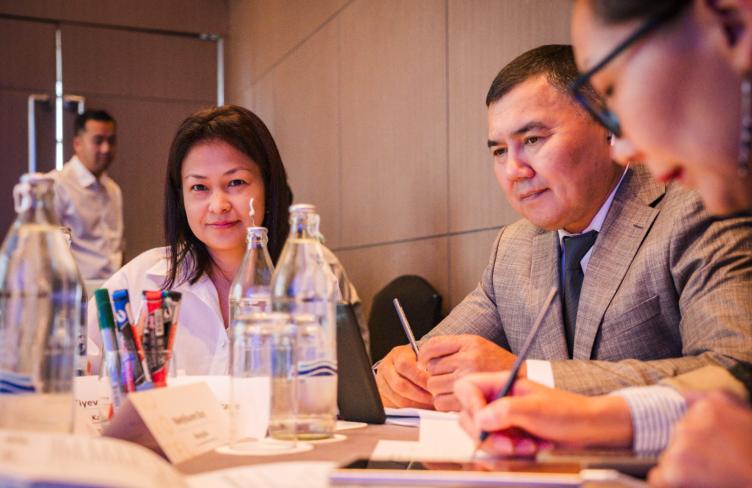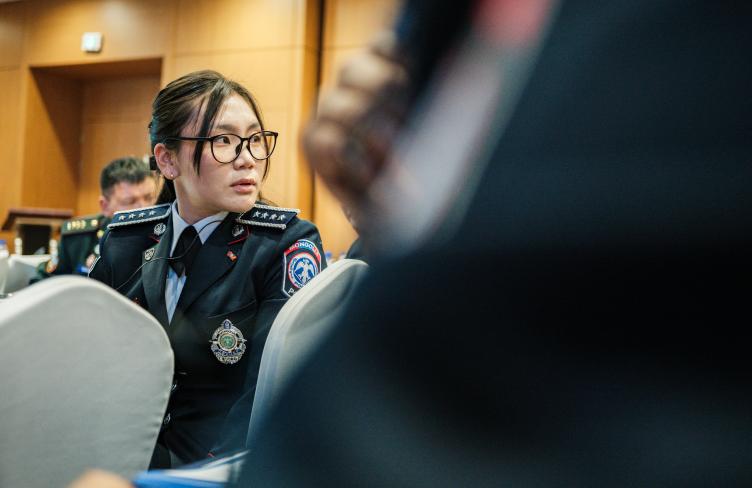
By ratifying the torture prevention treaty – the Optional Protocol to the UN Convention against Torture (OPCAT) – Rwanda committed to establish an independent national detention monitoring body, known as National Preventive Mechanism (NPM). To this end, the Government of Rwanda decided to give the role of NPM to its national human rights institution, which will now be mandated to conduct, with or without notice, regular visits to all places where people may be deprived of liberty. Though the law still needs to be signed off by the President before entering into force, the National Commission for Human Rights (NCHR), in partnership with the APT, is already preparing the ground to integrate the NPM’s preventive approach into its work, a challenging task in view of the number of reforms that the NCHR must undertake to that effect.
On 21 June 2018, Rwanda’s Parliament adopted a law amending the law n° 19/2013 of 25/03/2013 determining the NCHR’s missions, organisation and functioning, in order to integrate the NPM mandate. This decision was taken after a series of consultations that the Government held with various stakeholders, including the APT, following OPCAT ratification on 30 June 2015. The adopted law is the results of combined advocacy efforts* of the APT, together with the NCHR and Rwandan civil society organisations, as well as advice and technical expertise that the APT provided in drafting an OPCAT-compliant law amending the NCHR’s legal basis to integrate the NPM mandate. The law now awaits for the signature of the President of the Republic to enter into force.
Giving the NPM mandate to a national human rights institution (NHRI) has a number of advantages but also some practical challenges, as several reforms are needed to integrate the preventive approach into an existing structure. These include, inter alia, revising the NCHR’s organisational structure, internal rules and procedures as well as building the capacity of its Commissioners and staff to fully grasp their new mandate and working strategies.
It is in this context that, in partnership with NCHR, the APT organised a capacity-building workshop for Commissioners and relevant staff members of the NCHR on the Strategic understanding and implementation of the NPM mandate. The interactive format of the training workshop, which gathered around 40 people on 17-18 July, provided a great opportunity for participants to apprehend the specificities of the NPM mandate and working methods – including the necessary cooperation and dialogue with the authorities – as well as to develop a roadmap for the effective start of the NCHR in its new capacity.
Photos from the APT-NCHR capacity-building workshop on the Strategic understanding and implementation of the NPM mandate. © APT 2018
The workshop was followed on 19 July by a working meeting on the review of the NHCR’s Internal Rules to integrate the NPM’s new role. This technical meeting was informed and enriched by the discussions and ideas that emerged from the two-day workshop.
“This is a major step forward for Rwanda, and possibly for the region as a whole,” said Jean-Baptiste Niyizurugero, APT’s Programme Officer for Africa. “A successful process in Rwanda could inspire other States in the region [who are in the process of designating their NHRI as their future NPM] to follow suit in taking effective measures to prevent torture and ill-treatment, and strengthen public trust in their respective justice systems.”
The APT will continue to accompany the OPCAT implementation process in Rwanda by supporting the NCHR in the effective integration and operationalisation of its new mandate. This includes ongoing support to the revision of its internal rules, as well as capacity-building of its Commissioners and staff to monitor places of deprivation of liberty, draft preventive recommendations and follow-up on their implementation.
“We greatly value APT’s contribution and willingness to share their experience, in-depth expertise and insights with us, and we look forward to strengthening our collaboration with them, especially in the coming months as we undertake our new mandate as NPM,” said NCHR Chairperson, Madeleine Nirere. “Since Rwanda ratified the OPCAT in 2015, the APT has played an important role, ensuring that the future NPM be based on strong legislation, while all relevant stakeholders be trained on OPCAT and torture prevention in general,” she explained. “In the same way, APT’s training workshop in July brought our Commissioners and Staff a number of skills and knowledge very valuable to start our new mandate effectively.”
The APT supports the implementation process of the OPCAT in Rwanda thanks to the support of the City of Geneva and the Kingdom of Belgium.
For more information on:
- Our work in Rwanda, please click here
- Rwanda’s implementation of the OPCAT, please access our OPCAT Database
Participants to the January NPM workshop, organised by the NCHR in partnership with the APT, pose in a group photo after the opening ceremony by Hon Minister of Justice and Attorney General, Busingye Jonhston (first row, 7th from left), between Chairperson of the NCHR, Madeleine Nirere (6th from left) and APT Africa Programme Officer, Jean-Baptiste Niyizurugero (8th from left). © NCHR 2018



